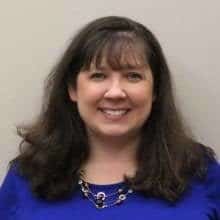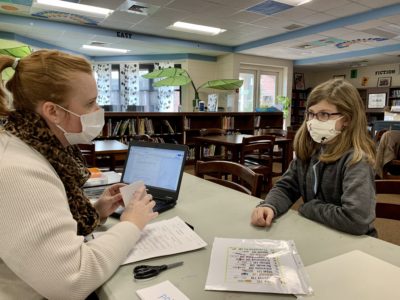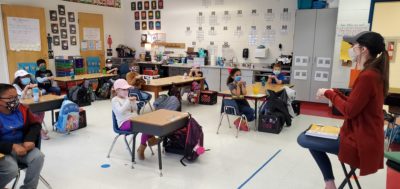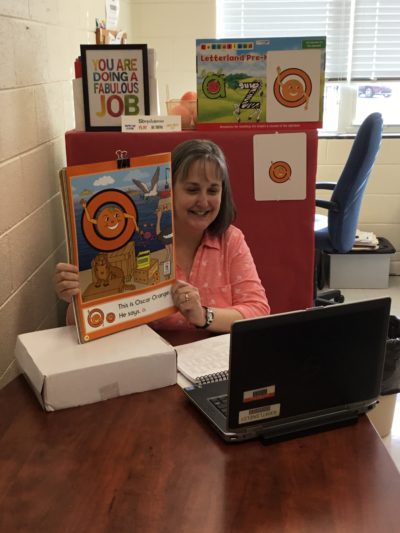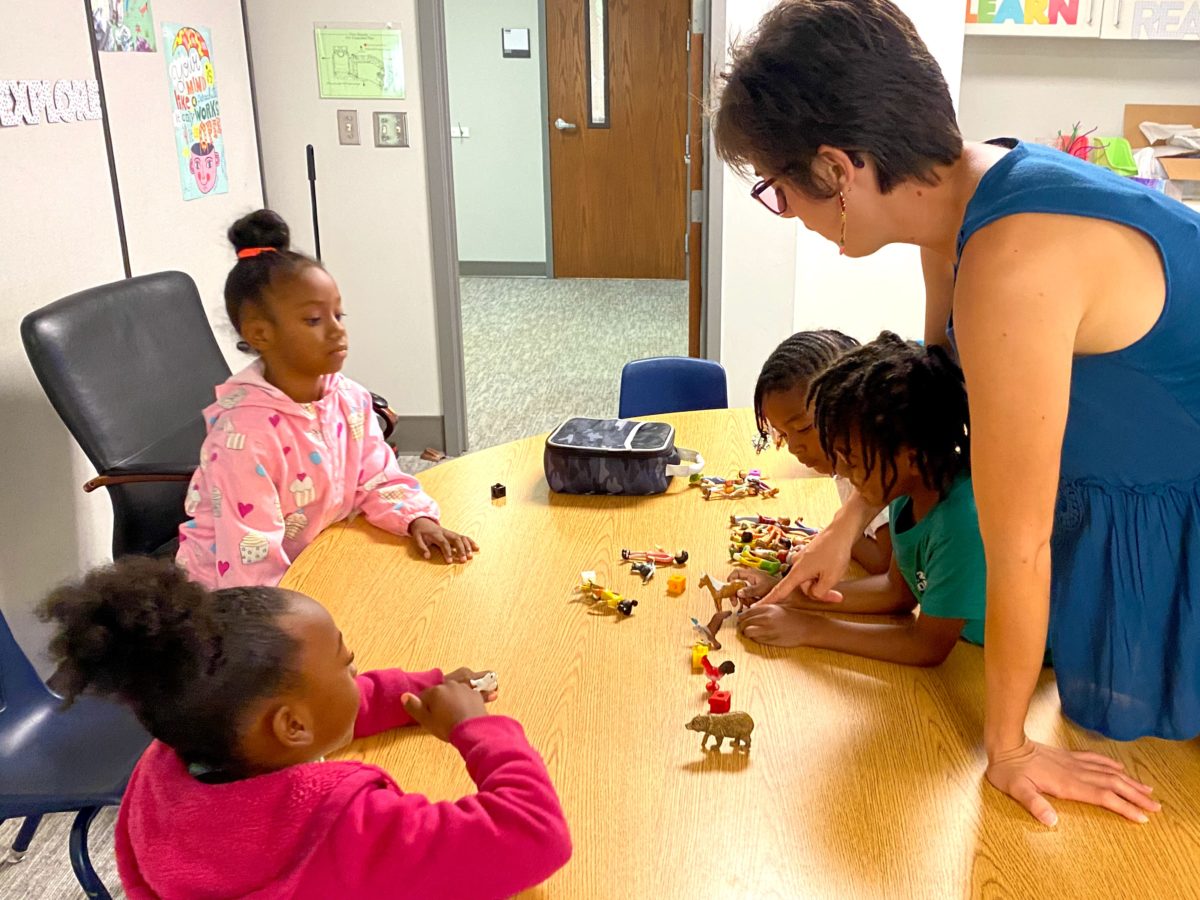
|
|
Three tables of kindergarteners are busily working away. Four children construct bridges for the Three Billy Goats Gruff, others are building houses for The Three Little Pigs, and the third group uses manipulatives to sequence Brown Bear, Brown Bear, What Do You See?
“The foundation of literacy is understanding the relationship between words and their meaning both literally and visually,” explains their teacher, Mary Snoke.
“Basic reading comprehension is participating in story retell using the pictures of a given book. A deeper comprehension of a text is developed when the child can visualize the ideas of a story and apply them through creative expression. … These activities provided opportunities for student retell, creative design, understanding cause and effect relationships, and developing problem-solving skills. This is literacy 101.”
Literacy camp develops comprehension & aims to prevent summer learning loss
Innovative activities like this are the hallmark of Brookstone Schools’ Straight to the Top Summer Literacy Camp, which strives to prevent the “learning loss” that often occurs over the summer, particularly for students without access to books or reading.
The camp offered five weeks of fun, games, learning, and continued support during the summer months to 123 rising kindergarteners through rising eighth graders in uptown Charlotte. Its main focus is to teach early literacy skills to rising kindergarteners, accelerate reading fluency, improve comprehension skills for all students, and build motivation and love for books.
“Research shows that students lose two to three months during the summer and that learning loss is cumulative over the years they are in school,” explained Suzanne Wilson, Brookstone’s director of major gifts. “However, summer camp keeps their minds engaged and keeps them reading. Pre- and post-tests show that, on average, our campers make at least a month to six weeks gain in reading fluency each summer. This summer’s camp is of even greater benefit, as it will help students regain some of the learning loss that may have occurred during this COVID year.”
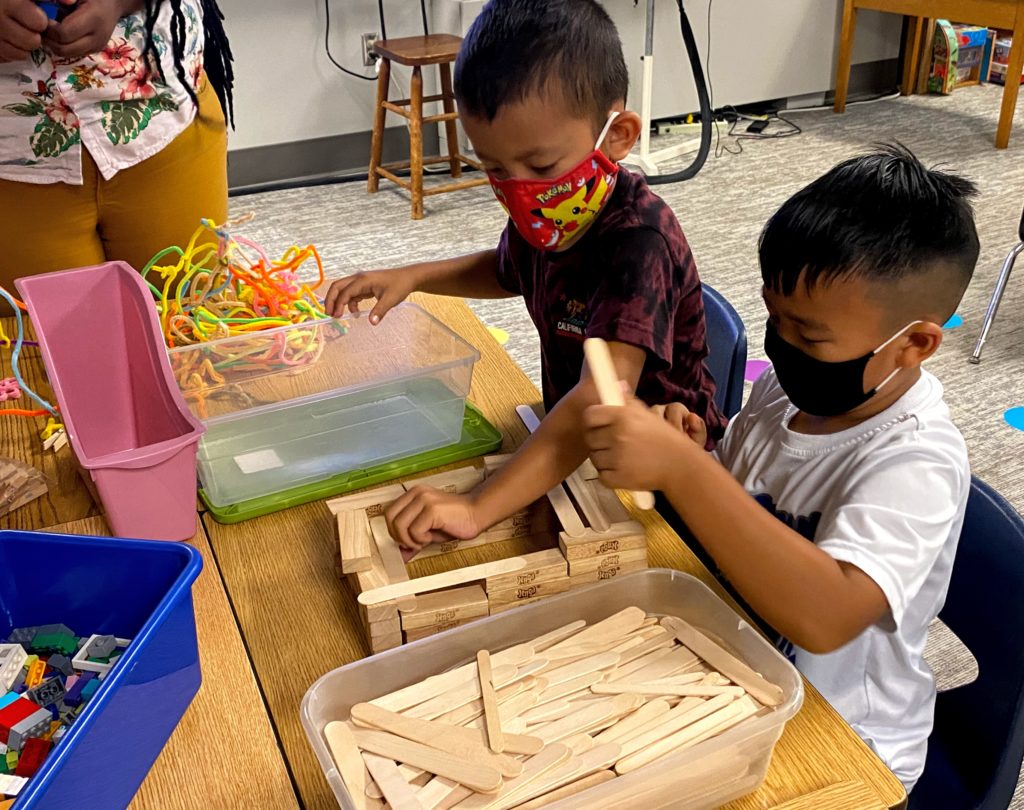
Kindergarteners build houses for the Three Little Pigs using pipe cleaners, Legos, wooden blocks, and popsicle sticks. Photo courtesy of Jeanna White. 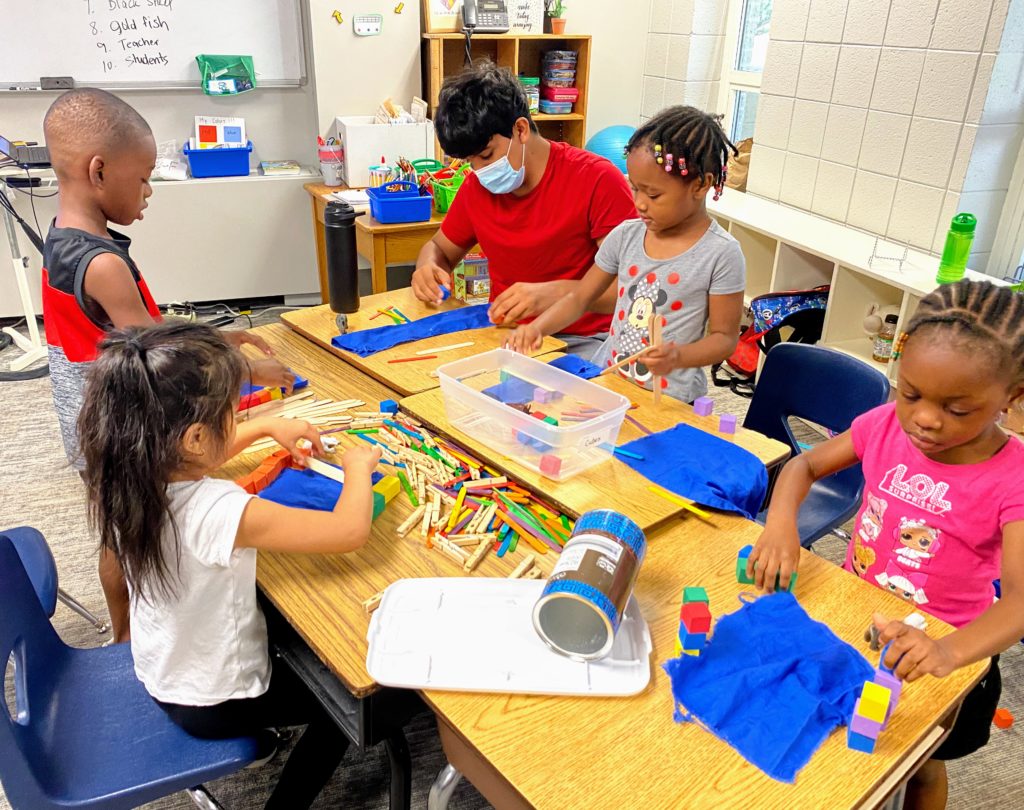
Brookstone Schools’ kindergarteners design bridges for the Three Billy Goats Gruff. Photo courtesy of Jeanna White.
Providing quality education for twenty years
Brookstone Schools, which opened its doors in 2001, is a non-denominational Christian school incorporating a biblical worldview into quality education for under-resourced families in Charlotte. Its students are equipped academically, socially, and spiritually for future lives of leadership and service.
The Mebane Foundation has supported Brookstone since 2012 when it awarded the school a three-year grant to launch the Straight to the Top summer literacy camp. Since then, the Foundation has invested almost half a million dollars in this inspiring program. This year, the Foundation provided a grant of $85,000 to support the camp, subsidize a reading specialist to provide teacher training and in-class supervision, and fund diagnostic testing for reading difficulties by a licensed clinical psychologist.
“Brookstone Schools has been a superstar in our portfolio of grantees ever since I met Suzanne back in 2012,” said Mebane Foundation President Larry Colbourne. “They continue to lead by example. Families and children who have benefited from their holistic approach to education have been extremely fortunate. All that to say: Brookstone is never satisfied and is always looking for new ways to support their families and to improve. With the addition of John as the most recent head of school, I think Brookstone’s future is more promising than ever.”
Wilson is grateful for the support, “The Mebane Foundation’s strategic philanthropy has been a game-changer for Brookstone over the years. The funding for programming and training has enabled Brookstone to develop a strong reading program, one that is producing excellent, sustainable outcomes year after year.”
Brookstone Schools Camp contributes to student confidence & fluency
Camp ran from 8 a.m. to 5 p.m., June 14th through July 15th. Mornings were devoted to three hours of focused reading instruction with the goals of:
- Giving rising kindergarteners a jump-start on learning to listen and early reading skills such as letter recognition, phonemic awareness, and writing their name.
- Strengthening students’ reading fluency to improve their comprehension and boost their overall ability to see themselves as confident readers.
- Offering children who have had limited opportunities for interacting with books, a literacy-rich classroom in the summer to encourage them to read good books.
Instruction for elementary-age students centered on building early reading skills such as phonemic awareness, decoding phonemes, words, phrases, and reading age-appropriate text. Teachers of upper elementary and middle school classes helped students practice fluency, comprehension skills, and strategies. Time was allotted daily for silent reading and spelling practice.
Afternoons included an additional hour of academic support and a variety of enrichment activities. Local churches provided Vacation Bible School and volunteers offered a wide range of activities including arts and crafts, music, and outdoor games. Middle school students participated in Mission Possible, a Christian program of mission and outreach to the urban community. This summer adults served alongside young people to help those in need at The Harvest Center, Bright Blessings, and Dove’s Nest.
“What a beautiful thing it was to see how our middle school students gave back to the community this summer,” said Wilson. “This is the eighth summer that Davidson United Methodist Church has led a service-oriented program for teens in our camp. Brookstone kids learn firsthand that even if your resources are limited, mission work is not impossible. You can still give the gift of your time and your heart to help others.”
More than academics
Brookstone’s new incoming students are required to attend the summer camp, free of charge, which introduces their families to both the benefits and the rigor of the program.
“Summer camp allows the families to have some ‘skin in the game’ and gives our teachers an opportunity to meet new students and begin to assess their needs,” explained Head of School John Murray, who joined the school in July 2020.
Those needs are often more than academic. During his tenure, Murray has expanded the school’s whole-child approach to education, including adopting a trauma-informed teaching approach, which factors in how trauma impacts learning and behavior. This has been particularly timely considering the negative impact COVID-19 has had on families’ stability and well-being.
“Trauma can slow down or completely stop our ability to learn. Kids experiencing trauma are more likely to fall behind in class or get in trouble for behavior issues,” said Murray. “Our students’ social, emotional, and mental health needs must also be met in order for them to learn.”
Research has shown that children with adverse childhood experiences (ACES) struggle more with learning and participating at school, with language development, communication, attendance, and excelling academically. They have a higher likelihood of dropping out early or choosing not to pursue higher education.
Last year, all of the teachers took ACES training to help them better identify the signs of distress in children and to give them strategies to address those needs in the classroom.
Additionally, the school received a grant to provide trauma therapy and counseling services through Christ-Centered Community Counseling (C4), an urban counseling & mental health awareness practice. If needed, counselors also provide families with referrals to organizations that can help with rent, utilities, and food. They had a caseload of 33 by the end of the first month. This year the school will also add a nurse to the staff.
“Over the past six months, we have witnessed numerous students’ lives changed for the better through the important work of C4,” Murray shared. “With the addition of a full-time nurse, as well as our partnership with the Mebane Foundation, we look forward to watching our students grow spiritually, socially, academically, this coming school year.”
